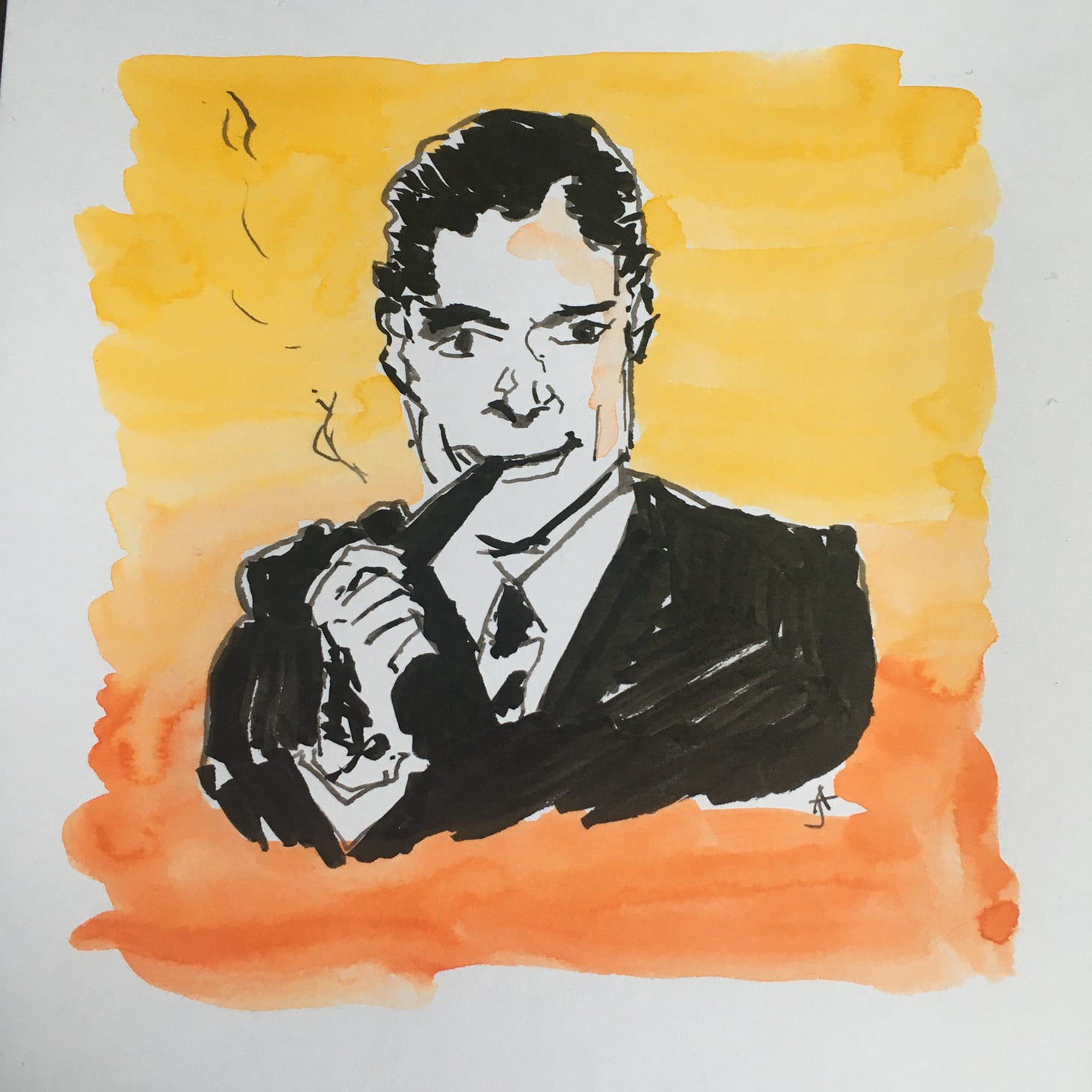Your attention, please
A few mornings ago the post brought me four books about the Playboy mansion. I’d ordered them the previous week while trying to wake up earlier every morning. I had to abandon the alarm after it brought me strange short story ideas and long zombie like days, but one of the short story ideas began with a train of thought about Playboy, Hugh Hefner’s magazine.
The first book I started reading was Steven Watts’s Mr Playboy: Hugh Hefner and the American Dream, a biography. (Side note: Watts, a professor of history at Missouri University has a way with titles that would impress a library catalogue; he’s also written books subtitled Henry Ford and the American century, and Walt Disney and the American way of life.)
From Mr Playboy I learned about the young Hefner drawing comic strips for his friends in school about fictional worlds that revolved around a Hefner alter-ego (sometimes called Goo Hefner). “In the comic book, you create a world in which the hero of the story is you, and you include your friends in the story … And you pass it around, and you are the center of that little world that you created.” From there, Playboy magazine was in a way only a change of scale.
I was thinking about it later while also thinking about the spate of newsletters/podcasts/subscription services/online communities/e-courses of the last few years. Some of them, and the people who create them are more interesting or appealing than others, but most of them have a structure a bit like Hefner’s childhood comics: come in and join this appealing group, which is centred around Me.
Is that what artists also do? Not quite, or not always. One difference: like a good meal, versus endless snacking, art usually has a defined beginning and end. A novel or a film or an album begins, then ends. Unlike Netflix, you could miss it. Another difference: art promises transformation, not analgesia. It does ask for your attention, of course, but your attention returns to you, perhaps a little sharpened. The world or your day might seem more in focus, more beautiful even, after you engage with art. The strange sleight of hand effected when someone is making something else – let’s call it ‘content’ – is otherwise. You give that person some money, though maybe not much, and your attention, which you didn’t really know what to do with anyway; and they make the time pass without your having to think about what comes next. But isn’t there a kind of clamour, as well as confidence trick, when someone persuades you to give them your attention? Isn’t your attention the one thing, in fact, that you might want to encourage back towards you like a badly behaved child or pet, and keep close? And if you did, what then?



You have my attention! Love the way you have described are here versus endless content and subscriptions... I've often thought about my work and how to balance that uncomfortable feeling of asking people for their time and attention to read, to look, or to engage, while deep down I really don't want to ask anything of them.